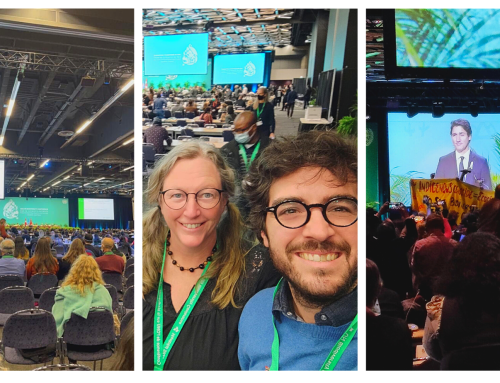AFSA Strategic Retreat, Lorne, December 2016
The AFSA National Committee gathered in Victoria’s Lorne for almost two days of reflection on the year past, some pretty incredible food, and the rare space to think deeply about 2017. We’ve come away from the retreat renewed in our commitment to create and fight for a democratic and resilient food system – one based on agroecological principles which nourish a community of eaters connected to their food supply and the people who grow it.
For all eaters and growers, whether urban, regional or rural dweller, food which is accessible, clean, nourishing and delicious is a right not a privilege. Food which is grown with the building of the soil’s health in mind, with the rights of the workers of the land in mind, with the ethical treatment of the animal in mind, and with the well being of the farmers in mind – these are the things we must continue to fight for.
Unfair, inconsistent regulations, illogical planning laws, a lack of transparency in labelling (including ingredients, GMOs and country of origin), food deserts, lack of education around cooking whole foods in season – these issues abound. If we do not continue to push back against the heavy-handed regulatory creep and continued erosion of our democratic rights as food eating citizens, we stand to further lose a genuine farming culture and supply of food which benefits us all.
AFSA’s mandate for 2017 is to support, raise funds for, and run the Legal Defence Fund (LDF) and to continue to cultivate the nexus between farmers, producers, and eaters, by way of advocating food hubs, Community Supported Agriculture (CSA), and other direct models of sale.
In thinking about the relationships between small producers and eaters, AFSA would like to see the creation of more CSAs. A solidarity economy brings the risks and rewards of real food production and distribution into sharp relief, whilst popular in Japan, North America, Europe, and many other parts of the world, it is a system not well known in Australia. What can we do to change that?
It’s that old chestnut of education. AFSA will be talking more about eating seasonally, ethically, and the benefits of solidarity economies with small-scale producers. As multiple AFSA committee members are small producers who offer CSA shares within their own farming practices, we are well-placed to provide forums for advice and discussions on how they best work, how to get them up and running, and how to market them. Let’s not lose any opportunity to mentor and “grow the growers”. As a personal aside, my family farm, Colin and Sally’s released its first CSA shares on January 1 2017, and we sold all of them within 11 hours. This highlights the incredible opportunities that exist for small producers to better connect with their eating community. The need and the want are there. AFSA is a member of Urgenci: the International Network of Community Supported Agriculture and we will be sharing more resources over 2017 as a way in which to better educate and support this method of exchange between farmer and consumer. A system of economy which better supports the relationship of eater to producer, eater to the seasons, and the economic strength of a local community is the healthiest of food systems.
Sounds simple. Should be. Unfortunately, regulatory overreach in the planning laws, lack of access to abattoirs (for poultry in particular), and overly burdensome and expensive processes are standing in the way of many small producers from feeding their communities. A decline in confidence in the kitchen, a persistent uncomfortable reliance on supermarkets due to convenience and a price model that disrespects every aspect of the growing of the food, and a lack of awareness of just what it takes and what it costs, environmentally and ethically, for an item of produce to go from tractor to trolley, these issues need highlighting and addressing. Alternative models of purchasing will be championed heavily in 2017.
2017 will see AFSA continue to run and fundraise for the LDF. Having now ratified the LDF’s Terms of Reference at the last AGM, a Steering Committee is being established and legal expertise drawn upon, in efforts to both address current illogical planning regulations and producers’ regulatory burden and to anticipate where next we might focus our energies. After a successful crowdfunding start, which many of you may have supported directly, we have the funds to commence the LDF’s work in earnest in 2017. This will be expensive but essential work for argoecological farming systems to fight for their rightful place in the food system
So. Perhaps you have already heard, or perhaps this finds me the bearer of some pretty exciting news, but in late-February 2017 AFSA is hosting a fundraiser for the LDF at Jonai Farms, near Daylesford, with the amazing Joel Salatin, in all his cowboy-hatted, intellectual, straight-talking glory. Jonai Farm embodies many of the values AFSA is fighting for; a resilient, diverse family farm that utilises many of Polyface’s teachings about using animals for optimum soil health, respecting the ‘pigness of the pig’, with control of their supply chain in their on-farm boning room and farm gate shop, plus a thriving CSA that has already demonstrated the value of the model by supporting them through a period of low fertility in their herd. The Save the Date is here. AFSA members will get first dibs on tickets which will be released for sale in the very early new year, so if you are not a paid-up member, we invite you to join us.
Moving along the calendar year and the AFSA National Committee has committed to shaking things up at the Fair Food Convergence and AGM in October 2017. To be held in Canberra, we are hoping a number of committee members will be able to conduct a few whistlestops along the way, collecting stories from eaters and small producers, with the idea of presenting our experiences, grievances and recommendations on fair and agroecological ways forward, to members of Parliament during their sitting week. A Fair Food Convergence, converging on Parliament – brilliant. We’ll let you know more in the new year what this will look like, and a Save the Date will be up soon.
By becoming a member of AFSA, you are committing to support the volunteer national committee achieve its mandate. Whilst we do seek out services for AFSA in the pro bono space, and we most certainly are reliant on these amazing volunteers, there are a range of needs that AFSA cannot acquire without funds. Pamphlets and other collateral, website maintenance and server costs, funding committee members to travel to conferences and speak at events – all to further grow the food sovereignty movement in Australia.
A membership-based organisation can be powerful, but in order to sit on the world stage, we need to turn up. In 2016 Fair Food Farmers United (FFFU), the farmers’ branch of AFSA, was officially accepted as a member of La Via Campesina (LVC), the leading voice of the global food sovereignty movement. LVC brings together millions of peasants, small and medium-size farmers, landless people, women farmers, indigenous people, migrants and agricultural workers from around the world. AFSA is also a proud member of both the International Planning Committee for Food Sovereignty and Urgenci: the International Network of Community Supported Agriculture. These connections put AFSA in a strong position within the global food sovereignty movement. By joining us as a member, you will be invited to have your say every year about what the issues are that we will focus on. There’s strength in numbers.
At the AFSA retreat in Lorne, there was an article and idea we kept coming back to, which was Toward thick legitimacy: Creating a web of legitimacy for agroecology – “To achieve real change in how food is produced and eaten, we need to change people’s expectations of what “normal” agriculture should look like”. Like Joel Salatin, Maywa Montenegro and Alastair Iles argue that our movement needs to change the narrative. The industrial food system has failed us, and to add insult to injury, along the way they have usurped the narrative of normalcy and justified the failures as only modernity, nothing to worry about, just keep moving “forward”.
The many allies who’ve come together to make up AFSA today haven’t bought into the lie. The industrial food system is harming people, the environment, and our barometer of normal. Rather than continually positioning ourselves as the alternative, let’s remember that a regenerative and agroecological approach to food production was the norm until recently; industrial agriculture is the new, albeit powerful beast that requires the checks and balances proportionate to the risks that it has inflicted upon all areas of the food system. It’s time to redress the narrative.
As always, I thank the AFSA committee for their intelligence, time spent away from family and businesses, and their commitment to change. Onwards!
A peek into the mind of Joel Salatin is a fitting place to finish, this should whet your appetite for late-February: “From zoning to labor to food safety to insurance, local food systems daily face a phalanx of regulatory hurdles designed and implemented to police industrial food models but which prejudicially wipe out the antidote: appropriate scaled local food systems”.
Sally Ruljancich
President
Australian Food Sovereignty Alliance



